The Role Of Karma And Free Will In Jyotish: A Philosophical Perspective
28 March, 2023
Jyotish, the Vedic astrology, is a classical form of astrology used throughout India. It is founded on the belief that the placements of celestial bodies during a person's birth might influence their personality, relationships, and future life events. Understanding the workings of the cosmos and people's fate in Jyotish depends heavily on the ideas of karma and free choice. This guide provides a detailed philosophical perspective on the role of karma and free will in Jyotish.
Karma
A lot of Indian spiritual systems, like Jyotish, are based on the idea of karma. It is believed that everyone is responsible for their own karma, which is sometimes shown as a cosmic law ruling the cosmos. People attain vedic astrology training To hold a command in this field.
Each person's previous deeds have an impact on their present and future circumstances, according to Jyotish, who asserts that karma is a complicated system of causes and consequences. According to this idea, a person's words, deeds, and thoughts affect their karma, which accumulates throughout a number of lifetimes. A person's karma is said to have a variety of effects, including their health, money, relationships, and spiritual development.
In Jyotish Certificate Course , the pursuing astrologer looks at the person's birth chart, which offers information about their karmic effects. Future events and repeating patterns in a person's life may be predicted using information from their birth chart, which shows the planets' positions at the time of birth.
Free Decision
It's vital to note that this is the first time I've seen this term. The concept of free will refers to a person's capacity to make decisions that have an influence on their own future. Free will, according to Jyotish, is karma's complementary force, allowing individuals to control their own destiny by their choices and deeds.
According to the Jyotish viewpoint, one's free will is limited and is subject to their karma. This indicates that even if people are free to act whichever they like, their choices will have an impact on the world due to their past deeds and karmic consequences. Even if a person may voluntarily pick a certain professional route, their past karma may still have an impact on their success or failure in that field. This is what people learn in the vedic astrology course.
The Relationship Between Karma And Free Will
In Jyotish, the relationship between karma and free will is complex and dynamic. While individuals have the freedom to make choices, the consequences of those choices are influenced by their past actions and corresponding karmic influences. This means that a person's present behaviours are impacted by their previous deeds and may have an impact on their karmic future.
From a philosophical perspective, Jyotish reconciles these two seemingly opposing concepts by suggesting that individuals have the freedom to act, but the outcomes of those actions are determined by their past karma. Jyotish seeks to shed light on the karmic factors that form a person's current and future experiences rather than foretell the future.By understanding their karmic influences and making choices that align with their positive karma, individuals can improve their present and future experiences.
Conclusion
The concepts of karma and free will play important roles in Jyotish, which is a traditional system of astrology originating from ancient India. Jyotish views karma as a cosmic law that governs the universe and influences an individual's present and future experiences. The birth chart is used to understand an individual's karmic influences and predict future events and tendencies.
Jyotish reconciles these two concepts by suggesting that individuals have the freedom to act, but the outcomes of those actions are influenced by their past karma. By understanding their karmic influences and making choices that align with their positive karma, individuals can improve their present and future experiences.
Jyotish, the Vedic astrology, is a classical form of astrology used throughout India. It is founded on the belief that the placements of celestial bodies during a person's birth might influence their personality, relationships, and future life events. Understanding the workings of the cosmos and people's fate in Jyotish depends heavily on the ideas of karma and free choice. This guide provides a detailed philosophical perspective on the role of karma and free will in Jyotish.
Karma
A lot of Indian spiritual systems, like Jyotish, are based on the idea of karma. It is believed that everyone is responsible for their own karma, which is sometimes shown as a cosmic law ruling the cosmos. People attain vedic astrology training To hold a command in this field.
Each person's previous deeds have an impact on their present and future circumstances, according to Jyotish, who asserts that karma is a complicated system of causes and consequences. According to this idea, a person's words, deeds, and thoughts affect their karma, which accumulates throughout a number of lifetimes. A person's karma is said to have a variety of effects, including their health, money, relationships, and spiritual development.
In Jyotish Certificate Course, the pursuing astrologer looks at the person's birth chart, which offers information about their karmic effects. Future events and repeating patterns in a person's life may be predicted using information from their birth chart, which shows the planets' positions at the time of birth.
Free Decision
It's vital to note that this is the first time I've seen this term. The concept of free will refers to a person's capacity to make decisions that have an influence on their own future. Free will, according to Jyotish, is karma's complementary force, allowing individuals to control their own destiny by their choices and deeds.
According to the Jyotish viewpoint, one's free will is limited and is subject to their karma. This indicates that even if people are free to act whichever they like, their choices will have an impact on the world due to their past deeds and karmic consequences. Even if a person may voluntarily pick a certain professional route, their past karma may still have an impact on their success or failure in that field. This is what people learn in the vedic astrology course .
The Relationship Between Karma And Free Will
In Jyotish, the relationship between karma and free will is complex and dynamic. While individuals have the freedom to make choices, the consequences of those choices are influenced by their past actions and corresponding karmic influences. This means that a person's present behaviours are impacted by their previous deeds and may have an impact on their karmic future.
From a philosophical perspective, Jyotish reconciles these two seemingly opposing concepts by suggesting that individuals have the freedom to act, but the outcomes of those actions are determined by their past karma. Jyotish seeks to shed light on the karmic factors that form a person's current and future experiences rather than foretell the future.By understanding their karmic influences and making choices that align with their positive karma, individuals can improve their present and future experiences.
Conclusion
The concepts of karma and free will play important roles in Jyotish, which is a traditional system of astrology originating from ancient India. Jyotish views karma as a cosmic law that governs the universe and influences an individual's present and future experiences. The birth chart is used to understand an individual's karmic influences and predict future events and tendencies.
Jyotish reconciles these two concepts by suggesting that individuals have the freedom to act, but the outcomes of those actions are influenced by their past karma. By understanding their karmic influences and making choices that align with their positive karma, individuals can improve their present and future experiences.

